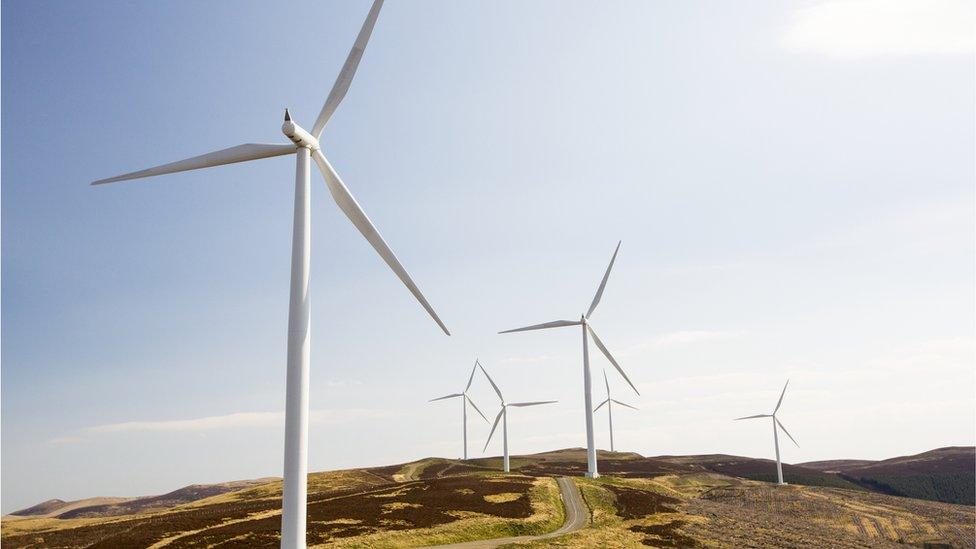Energy bills pushed up by electricity charge, research shows
- Published
- comments

The way electricity prices are set has pushed UK household bills up by £7.2bn over two years, analysis suggests.
Under existing rules, energy suppliers pay the highest price for wholesale electricity no matter how it is made.
Gas-fired power stations are the most expensive way to generate electricity, but only make about 40% of all electricity used by UK homes.
That means homes pay over the odds for power generated any other way, said the Carbon Tracker Initiative.
If an average price was used instead the UK's electricity bill could be much lower, the not-for-profit climate think tank said.
The Department for Business, Energy & Industrial Strategy (Beis) said it had "already launched a major review" of the electricity market "to radically cut costs" for consumers in the long term.
Rising costs
The price for wholesale electricity is set by a bidding process, with each generating company saying what it would be willing to accept to produce a unit of power.
When it's windy and sunny enough to meet demand for electricity through renewables, the wholesale cost drops to close to zero, according to Beis.

But when it's not, the wholesale cost is set at the level that all providers will accept - which is the highest bid.
In the past, gas powered generation was among the cheapest ways of producing electricity.
For decades, wholesale gas was relatively cheap in the UK, and only started to soar in price in May 2021 as economies recovered from the pandemic and Russia's invasion of Ukraine disrupted supplies.
Wholesale gas prices have fallen sharply since August 2022, but are still about three times the price of May 2021.
Charging an average price for wholesale electricity would have made the bill in the two years from 2021-22 £7.2bn lower, the Carbon Tracker Initiative said.
According to BBC calculations that's about £250 per household.
Due to the current system, firms that make renewable energy have been paid much more for their power than it costs them to generate.
For this reason the government introduced a temporary 45% tax in January on what it calls "extraordinary returns" from low-carbon electricity generators in the UK.
Simon Francis, co-ordinator of the End Fuel Poverty Coalition, which campaigns for warm homes, said "injustice" in the electricity pricing system was at a "shocking scale"
"It cannot be right that consumers have been prevented from benefiting from the reduced cost of generating electricity," he said.
Lower bills
Jonathan Sims, an energy analyst who wrote the CTI report, said the findings showed how the global gas market over the last two years had skewed British power prices.
He said these prices did not reflect the different technology the UK now uses to generate electricity.
The CTI's report takes into account the need for sources of power that can be fired up immediately such as gas-fired, or provide near constant output such as nuclear, whereas wind power for example is weather-dependent.
The analysis also suggested Europe's most gas power-dependent countries, the UK and Italy, had consistently paid the highest prices for electricity during the recent period of gas price volatility.
The business department said it was consulting on changes that "would stop volatile gas prices setting the price of electricity produced by much cheaper renewables".
It also said its windfall tax on renewables generators would "help fund energy bill support for households and businesses".
Related topics
- Published12 January 2023
